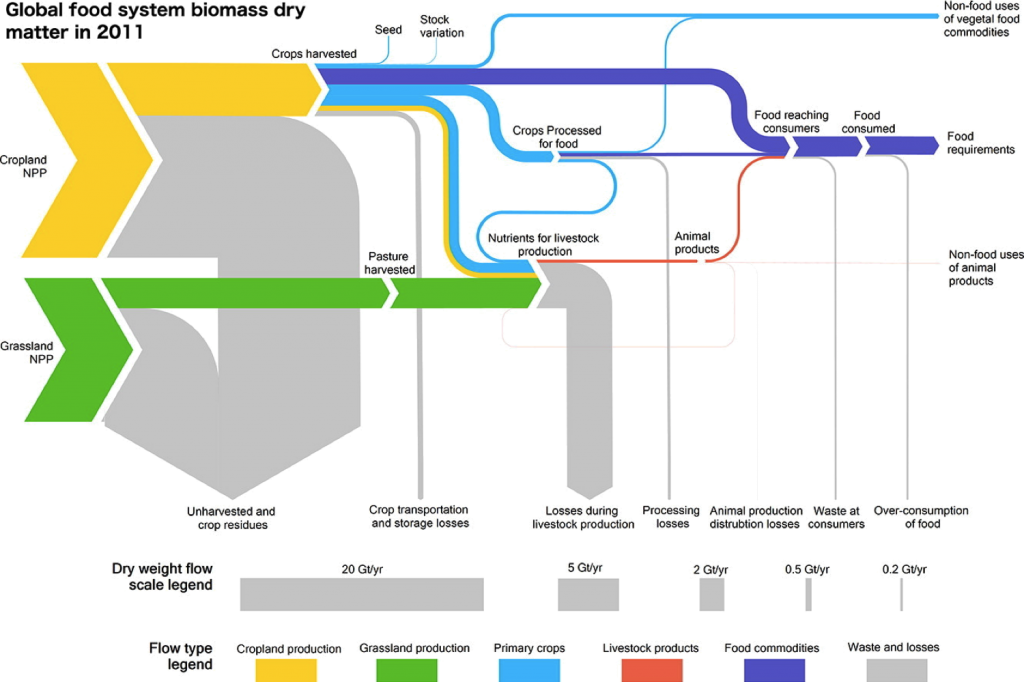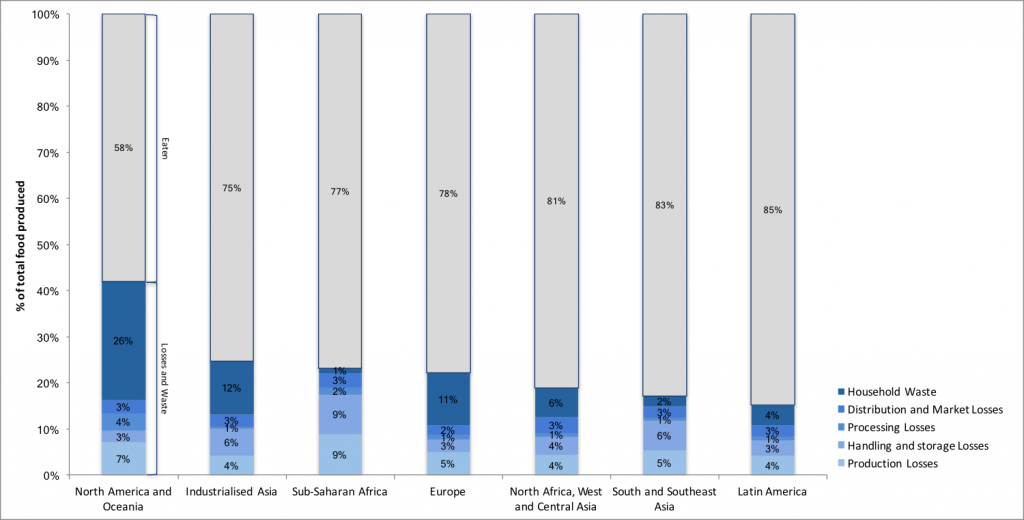The production and loss of food from the human food chain has a substantial impact on the planet.
Carbon Emissions
(GTCO2e per year)
China (9.7)
USA (5.4)
Food Loss (3.3)
Land Use
(billion ha)
Food Loss (1.4)
Europe (1)
USA (1)
Water Depletion
(thousand m3 per year)
Food Loss (250)
US Ground Water (69)
Food can be lost or wasted at all stages of the value chain. During production, losses occur when crops do not meet their yield potential due to factors such as lack of nutrients/water, disease, and poor weather conditions, or are not harvested. Inefficiencies occur as parts of crops cannot be harvested, and in the feed-to-animal conversion. Losses also occur during transport, storage and processing. In addition household food waste can be significant, when food is not used or when it is over-consumed.

The reason food is wasted before it is consumed varies by region. Household food waste is concentrated in America, industrialised Asia and Europe, whilst waste during production and handling is more significant in Sub-Saharan Africa.

Data from: WRI (2015). WRI analysis based on FAO. 2011. Global food losses and food waste—extent, causes and prevention. Rome: UN FAO.
Food loss is an inherent part of the food system, but what we do with it determines whether or not our resources have been wasted. In the Netherlands, the majority of food waste is incinerated:
Food redistribution (1%)
Animal feed (21%)
Fermentation (7%)
Composting (22%)
Incineration (46%)
Landfill (3%)



